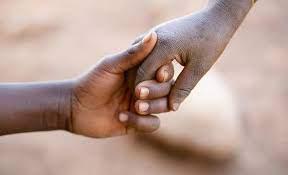
Persistent violence in Haiti remains a significant concern for the safety and welfare of its most vulnerable citizens, especially women and children, the UN Children’s Fund (UNICEF) said on Monday, citing reports of an “alarming spike” in kidnapping and other crimes.
According to UNICEF, nearly 300 confirmed cases were reported in the first six months of 2023, almost matching the total number documented over 2022 and close to three times the number in 2021.
“The stories we are hearing from UNICEF staff and partners on the ground are shocking and unacceptable,” Gary Conille, UNICEF Regional Director for Latin America and the Caribbean, said in a news release.
“The growing trend in kidnappings and abductions is extremely worrisome, threatening both the people of Haiti and those who have come to help,” he added.
In most instances, children and women are forcefully taken by armed groups and used for financial or tactical gains. The victims who manage to return home grapple with deep physical and psychological scars, possibly for many years.
Women and children are not bargaining chips
The overall situation in Haiti is catastrophic. Today, an estimated 5.2 million people, or close to half of the entire population, require humanitarian assistance, including almost three million children.
Children find themselves in the crossfire, or directly targeted, and women and girls face extreme sexual violence, as armed groups terrorize the population in their fight for territory and control, mainly in the capital, Port-au-Prince, and also in other regions.
“Women and children are not commodities. They are not bargaining chips. And they must never be exposed to such unimaginable violence,” Mr. Conille said, calling for the immediate release and safe return of all those who have been kidnapped.
Health system on verge of collapse
On top of crime and violence, reports indicate that local healthcare systems are teetering on the brink of collapse amid a resurgence of cholera and severe malnutrition.
The increase in violence, looting, road blockades, and the pervasive presence of armed groups severely obstruct humanitarian efforts, making it difficult to deliver much-needed aid to affected communities, UNICEF said, noting that as months go by, it adds an increasing layer of fear and complexity to an already challenging environment for those delivering life-saving aid.
The assassination of the President of Haiti in 2021 plunged the country into a deep political crisis, which has been exacerbated by an unprecedented breakdown in security.
Armed criminal gangs are said to be “imposing a regime of terror” and violence in most parts of Port-au-Prince, severely impacting the humanitarian, human rights and socio-economic situation in a country already hit hard by poverty, disease and disasters.
Commitment to support those in need
The UN agency added that it stands steadfast in its commitment to deliver critical aid and support for Haiti's children who have been impacted by these traumatic events.
Beyond its initial crisis response, UNICEF supports the children and victims of the crimes, and working alongside partners, provides life-saving assistance, ensuring access to medical care, psychosocial support, and safe spaces where children can begin the process of healing and recovery.
“I have witnessed the remarkable resilience of Haitian children, women and families as they face seemingly insurmountable challenges, refusing to surrender,” said Mr. Conille.
“However, their bravery is being met with increasing, unthinkable terror. It must stop now.”
Source: UN News
https://news.un.org/en/story/2023/08/1139487
 FR
FR EN
EN AR
AR








